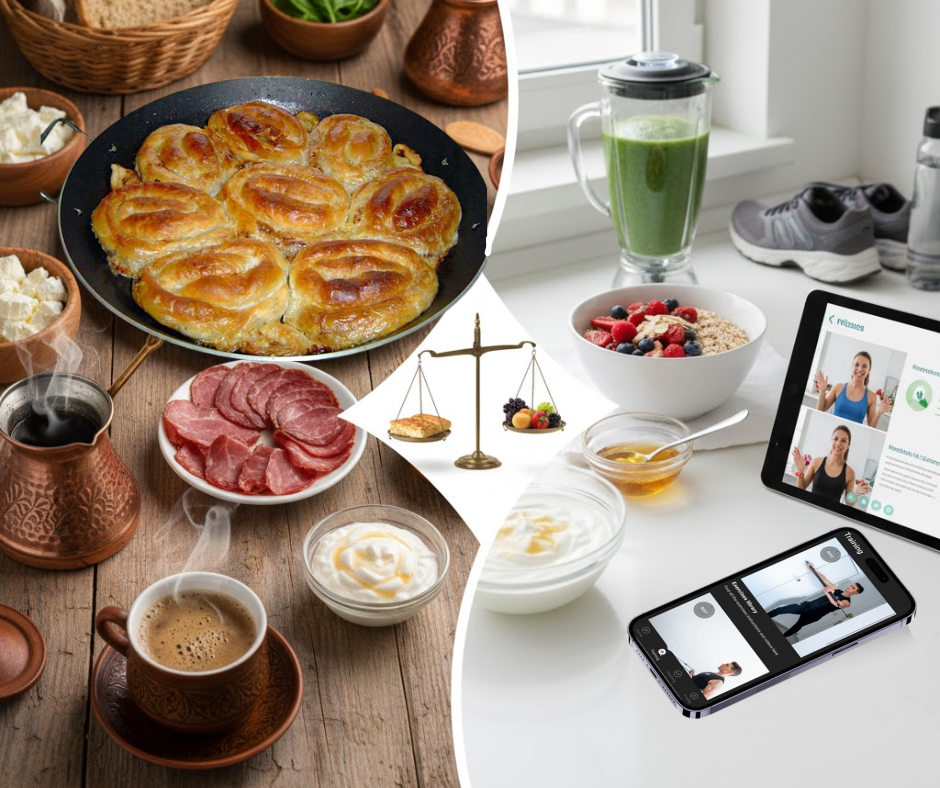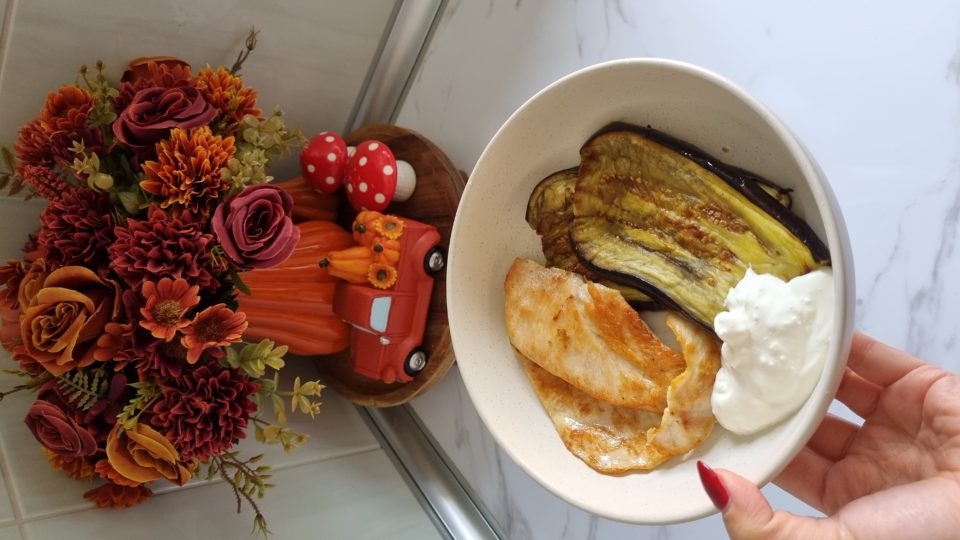
Breakfast in Bosnia and Herzegovina (BiH) has traditionally consisted of deep-fried dough, savory pies, homemade sour cream, cheese, dried meat, bread, and similar staples.
Today, growing number of people, especially young people, start their day with Greek yogurt, smoothies, or oatmeal. Calories are recorded, healthy meals are shared, and exercise is frequent. Time will tell whether these are merely passing trends or will change deeply ingrained eating habits, but experts recommend finding balance in our diet because eating healthy shouldn’t be seen as a punishment.
In BiH, where cuisine is tied to identity and emotions, changing eating habits isn’t easy. For many, the shift away from the foods that they grew up with is largely motivated by the desire to improve their appearance and health, as well as the influence of social media, influencers, fitness trainers, and nutritionists.
“People often make the mistake of suddenly eliminating flour, oil, and sugar, and trying to change habits too quickly. This can’t last. A healthy diet isn’t a punishment, but a way to learn to balance. The point is not to eliminate pita, but to make it with less fat and more vegetables,” says Nela Muslim-Velić, a nutritionist.
Traditional dishes, she adds, are often nutritionally valuable—the problems lie in portion sizes and preparation. “If dishes are adjusted a little, they can become part of a balanced diet. Instead of frying, choose baking. Instead of plain flour, use wholewheat flour. Instead of frying, use a little olive oil. It’s not a change in taste but in habit,” Nela explained.
For years, Zina Buljubasic struggled with PCOS (Polycystic ovary syndrome) and insulin resistance. Between diets, misinformation, and constant fatigue, she felt lost. When she found a balance in food and a routine that suits her, she decided to share the experience with others to help women feel good in their bodies, without restrictions and stress. She founded the PCOS Balance program and shares daily recipes and tips for healthy eating on social media.
Changing eating habits, as she explained, isn’t just a matter of will but also of mentality: “People start suddenly, throw out half their food and expect a miracle in three weeks. And when they don’t see results, they give up. It’s that ‘all or nothing’ philosophy that kills all motivation. Healthy eating isn’t a diet, it’s a way of life. Small changes that you can stick with give the best results in the long term.”
Food is More than a Meal
Zina recommends starting with basic habits: don’t skip breakfast, drink water instead of soda, have regular meals and a sensible amount of food. “If you skip meals, you will definitely overeat in the evening. It’s best to start with something simple, say a breakfast rich in protein—eggs, cottage cheese, tuna. When it becomes a routine, the body adjusts,” she explained.
She noted that in BiH, food is more than a meal; it’s a symbol of love, care, and togetherness. When someone tells you to “have another bite,” it’s not a form of pressure but a way to show they care. This is what makes changing habits so difficult, because it’s not just about what’s on the plate but also about emotions. Zina adds that many people mistakenly think that a healthy diet means completely giving up traditional food.
“The point isn’t to give up everything but to find a balance. You can eat sarma, but with less rice and without frying. You can make a pie with less oil and more filling. Everything can be adapted, just as long as you don’t go from one extreme to the next,” says Zina.
In addition to improving confidence in your physical appearance, a better diet is important for overall health. Among the numerous educational platforms, projects, and programs promoting healthy eating is Revolution by Amina, which focuses on general health and physical performance.

Revolution by Amina program was started by Amina Gluhić-Smirko, inspired by her personal struggles. After being fired from her job while on maternity leave, she began exercising with a small group of women in a rented hall. The pandemic led them to an online program, which, as she points out, was a complete hit. Today, she has a fitness studio, an online program, and since September, a mobile app, which is a new step towards making everything available in one place.
“Women come to in person work-out sessions not just for the exercise, but also for the social experience, motivation, and sense of belonging. It’s a safe space for girls and women, where we encourage and inspire each other,” said Amina, adding that more than 20,000 users from BiH, Austria, Germany, America, Australia, Japan, and Senegal have gone through her online program.
For her, the digital participants are proof that borders no longer matter and that community can be global.
“With us, there are no marketing tricks or programs for one part of the body. The body is a whole and should be trained as such. My goal isn’t to sell, but to give women knowledge and support that changes their lives in a healthy and sustainable way,” said Amina.
Creating Healthy New Traditions
Changing habits starts with small steps. Zina notes that change doesn’t happen when you cut out the pie, but when you learn to eat without feeling guilty because you will have a balanced day tomorrow. Amina sees better awareness as the greatest success: “It’s not about perfection. It’s about eating a little better today than yesterday—understanding that you’re worth the effort and that health isn’t a luxury but a choice you make every day.”
There is no universal diet that fits everyone, and Nela emphasizes the importance of finding a sustainable nutrition program. “Health doesn’t come from prohibitions, but from understanding the body,” she notes, adding that people should eat a variety of foods, eat regularly, drink enough water, and listen to their body’s signals.

“People often forget that the feeling of hunger isn’t the enemy. The body is just telling you that it needs something. It’s important to know what you’re giving it in return,” Nela emphasized.
Changing eating habits doesn’t happen overnight. Amina says that you need to take small steps and that there is no ideal moment. Motivation, according to her, comes from taking action, from that first workout and the energy you feel. “When you stop looking at changes as an obligation and start seeing them as a gift, then consistency comes,” said Amina.
Thanks to nutritionists, educators, and online communities like PCOS Balance, healthy eating is no longer a privilege but an everyday movement starting in our own kitchens. It’s no longer a question of replacing pie with salad, but of balancing both in proper measure, with awareness and self-love.






